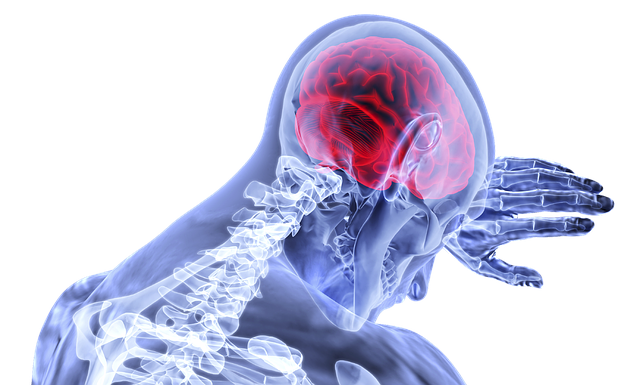Table of Contents
You’re supposed to pack lunch for your child before he or she leaves for school. For some reasons, you messed up by forgetting about that and you have a hungry and upset child to deal with later in the day. And that’s just one of the many things you have ‘forgotten’ in recent days.
Sounds familiar?
If you’re struggling with recalling events and having trouble to focus, you may be suffering from brain fog. You may be unfamiliar with the term, but the feeling where your mind just refused to function at its best is no stranger to many of us.
What Is Brain Fog
Brain fog is not a medical condition by itself. It is often the sign of other issues with your health. There’s no warning where you could take heed. Regardless of your age, gender and lifestyle, you could be waking up in the morning with a very disoriented mind.
Having brain fog is frustrating, especially when you have dozens of tasks you need to finish off urgently. If you don’t understand what you’re dealing with, you’ll be grasping at thin air trying to regain the laser-sharp focus.
What Causes Brain Fog
While it’s true that some supplements reduce the effect of brain fog, you’ll need to know what are the causes to deal with the problem at its root. After all, brain fog is just the manifestation of something that has gone wrong with your health.
Here are some possible causes that trigger brain fog.
1. Excessive Stress
Stress is something that most of us are familiar with. It is produced when you have a healthy level of pressure at work to push you to the next level. Stress, when managed well, wouldn’t be an issue. But excessive stress, coupled with poor stress management skill, lead to a build up of repressed emotion. This often leads to anxiety or depression and of course, causes brain fog to develop.
Give yourself a break when you’re mentally exhausted. There may be deadlines to meet, but to be frank, it’s unproductive to slug it on with a fatigued mind. Rather than futile efforts of focusing, it’s better to take a good break and allow yourself to rejuvenate.
2. Eating Habit
It may escape you that what you eat could ultimately affect your brain health. The fact is, the gut system and the brain is very much connected. Thus, it is not surprising if your eating habit has led to the occurrence of brain fog.
For instance, some people are sensitive to gluten. Taking foods like pastry, which is made of wheat, can cause your mind to feel fuzzy. The same could happen when you’re taking foods that have MSG added on, as it could disrupt the healthy level of glutamate in your brain.
Read More About Foods That Cause Brain Fog Here
3. Lack Of Sleep
You’ve read about how some highly successful people slept 5 hours or less in a day. You wanted to be successful and you replicate their sleeping habit. Instead of finding success, you ended with bad episodes of brain fog, where you struggle with focus and memory almost all day.
Sleep, or rather the lack of, is a common cause of brain fog. If you’re not getting enough quality sleep, you’ll wake up in the morning feeling groggy. It’s like being under a spell that makes you terribly sluggish and it doesn’t wear off easily.
My advice? Get the amount of sleep your body needs, and you have a better chance of being successful.
4. Medical Conditions
There are some medical conditions, particularly those that affect the nervous system and inflammation that are the culprits of brain fog. Multiple sclerosis, or MS, is a condition where the brain suffers from lesions and inflammation.
People with MS experience difficulty in learning, memory, and concentration as their brain functions are affected. While it seems to be a tough situation to be in, there are ways to cope with brain fog when you’re suffering from MS. Slowing down your execution and having an organizer helps to minimize the disruption on your daily life.
Besides MS, disorders like Alzheimer’s disease, chronic fatigue syndrome and fibromyalgia are also known to induce brain fog.
5. Medication Side Effects
Certain drugs may cause you to experience sluggish thoughts. If you’re prescribed with medications and you’re experiencing brain fog, talk to your doctors to seek alternative remedies.
People who undergo chemotherapy may also experience brain fog, as the procedure involves the use of very strong drugs.
6. Hormonal Change
As women progress through different chapters of their life, they will experience hormonal changes in their body during pregnancy and menopause. Such changes may lead to trouble in recalling memories and concentrating on simple tasks. Thankfully, the brain fog will cease when the hormone level has stabilized.
7. Dehydration
Water is the source of life-forms and an often overlooked cause of brain fog. There are merits to the often preached advice of drinking 8 cups of water a day. Without sufficient water in your body, you’ll start experiencing more than a handful of repercussions.
The next time you’re absorbed into working on your computer and you start feeling your mind getting fuzzy, try drinking a cup of water or two. Sometimes, that’s the answer needed to dispell the bout of brain fog.
Bottom Line
Depending on the causes of brain fog, the duration of mental fatigue may differ. Nevertheless, there are supplements that you could take to reduce the effect of brain fog and allow you to function normally in daily tasks.
Do you suffer from brain fog? Did you find out what causes the condition? Share your experience in dealing with it in the comment below.
Related:
- 7 Effective Ways To Clear Brain Fog
- How To Increase Focus And Concentration
- 7 Unexpected Foods That Cause Brain Fog
- Best Huperzine A Supplements For Memory Enhancement
- Best L-Tyrosine Supplements For Mental Performance








Leave A Comment